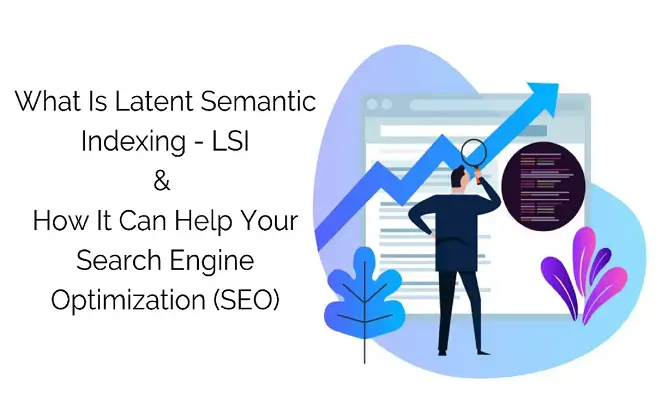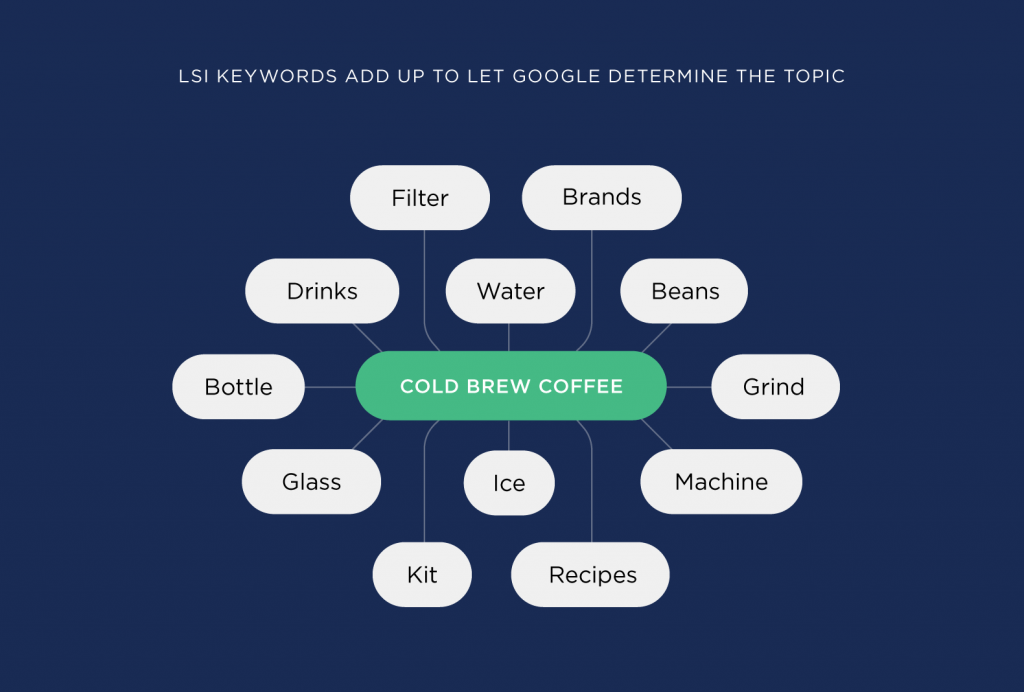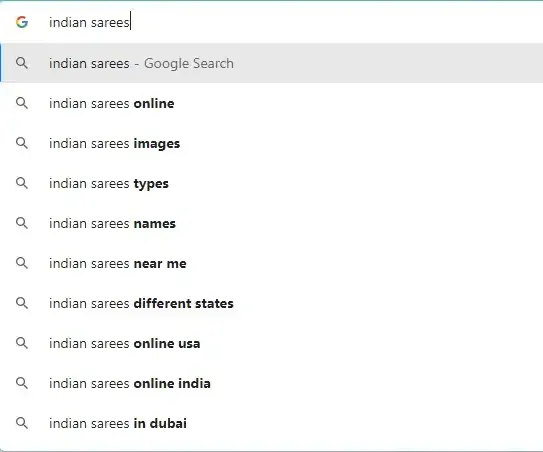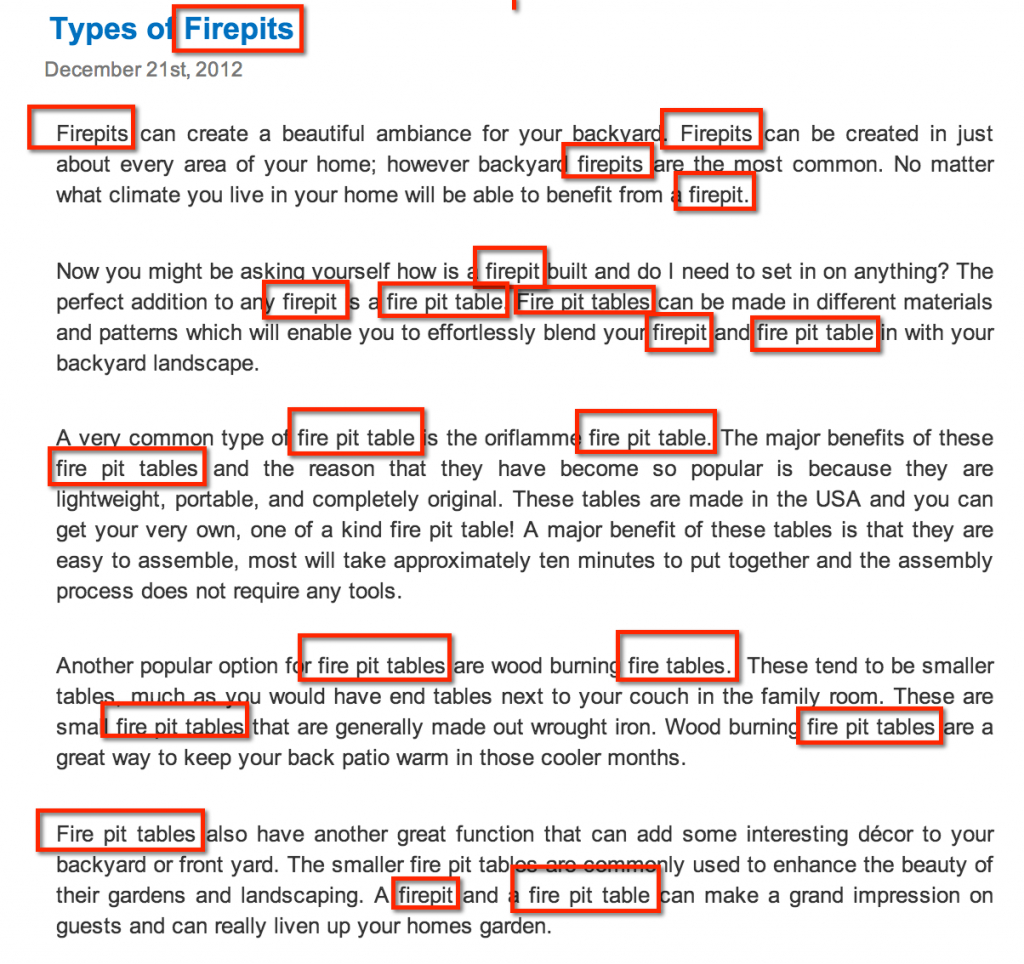
Latent Semantic Indexing – LSI is a popular term amongst SEO experts and some reputed influencers. LSI is an excellent application for ensuring organic search achievement. Google reveals that HubSpot & other leading sites implement Latent Semantic Indexing – LSI to get an optimum SEO boost for next-level campaigns.

Table of Contents
- Why Use LSI for SEO?
- The Benefits of Using LSI Keywords:
- How to Create LSI Keywords?
- A Step-by-step Process Of Finding & Using LSI Keywords
- How To Implement LSI Keywords?
- To Summarize LSI, Here’s What To Remember!
What is LSI and How Can It Benefit SEO Performance?
LSI has an extra advantage of furthering business scope among marketers. Latent Semantic Indexing – LSI (LSI) is a process by which search engines (such as Google) discover ways to make content and terms work simultaneously. LSI helps in collating content that is beyond keywords, key phrases, or synonyms.
Search engine optimization boosts website traffic through the exact keywords on your pages but, as time goes, keyword-stuffed content, paragraphs and meta tags are becoming outdated SEO techniques. And, that is where LSI comes to action- a necessary practice of using LSI keywords to keep sites relevant amidst the vast search engine world!
A Brief Introduction to Latent Semantic Indexing – LSI: The Power of Context
Latent Semantic Indexing – LSI came into existence around the 1980s and was intended to improve the information retrieval accuracy. LSI uses an algorithm called ‘singular value decomposition’ to scan unstructured data (in docs, paras, context) and recognize the relationships between concepts and key phrases.
LSI is conceptualized as a set of mathematical equations that are used by most search engines to make keywords and content work together and result in the same thing. It is a complex process- often hard to grasp yet, works perfectly in improving SEO.
Simple Points To Consider While Working With LSI
- Understanding LSI requires basic familiarity with internet searches, keywords, and SEO.
- Search engines are programmed in a way that it can recognize your content and identify related synonyms alongside your keywords.
- LSI keywords are not just simple keywords synonyms, instead, it is a collection of words that are frequently searched relating to the same topic/content.
Example 1 “Samsung” and “Android” are LSI keywords. Why? They are often found together; they share the same context but not synonyms.
Example 2: Suppose you are blogging about ‘Apple’ but how will the search engine differentiate if it is a ‘fruit’ or ‘the company’. So what’s the solution?
- If your page is about the fruit apple and encompasses keywords like ‘red apple’, ‘green apple’, ‘nutrition’, ‘healthy fruit’, ‘eating an apple’ then the search engine distinguishes that your page is about the ‘apple’ fruit.
- But, if your website consists of key phrases like ‘I-pad’, ‘I-Tunes’, ‘Apple News’ and ‘Apple iPhone’ and ‘Apple Store’ then the search engine understands will establish your page for the ‘Apple’ company.
So, LSI keywords will help you create specific page rankings and help your website rank higher!
So, What Good Do LSI Keyword Do?
LSI keywords, or Latent Semantic Indexing keywords, are words and phrases that are closely related to the main keyword or topic. These keywords help search engines understand the context and relevance of your content.
Think of them as related keywords that supercharge the meaning and depth of your content. For example, if you want to find the LSI Keywords of “Indian Sarees”.

Here the main keyword is “Indian sarees,” and thus the LSI variations could include “Indian sarees online,” “Indian sarees images,” or “Indian sarees types.”
LSI vs. Synonyms: Are They The Same Thing?
While you can consider some synonyms as LSI Keywords but there’s a difference between the two. LSI keywords go beyond basic synonyms. They include words and phrases that are related and relevant to the topic at hand.
However, synonyms may have similar meanings to your main keyword, but LSI keywords provide a deeper understanding of the topic. For example, if we take the main keyword “Indian cuisine,” LSI keywords could include “spices used in Indian cooking” or “popular Indian dishes.”
Why Have SEO Experts Started Implementing Latent Semantic Indexing – LSI ? (Keyword Stuffing, duh!)

The traditional practice of keyword stuffing is no longer a smart way to account for a page’s reachability. To measure SERP of a page, the keyword relevancy is to be measured in form of density and relatability.
Keyword stuffing example to unfollow right away!


Other Forms Of Keyword Stuffing Include
Adding a phone number list without adding relevant content- cities, addresses, etc. Google, on discovering such keyword-stuffed content, will penalize and remove keyword density. Instead, you must execute LSI keywords.
Before moving forward with why we use LSI in SEO and its benefits we need to understand the context of long and short tail keywords in LSI
Strategies for Using Long and Short Tail Keywords Effectively Through LSI
In the context of Latent Semantic Indexing (LSI), the distinction between long-tail targeting and short-tail keyword targeting remains relevant.
Just walk through this small concept and optimizes your content in relation to LSI for better visibility and traffic
Short Tail Keywords:
Short-tail keywords are one to three words in length and are generally more general and broad.
- They have a high search volume and intense competition.
- Examples of short-tail keywords include “shoes,” “digital marketing,” or “weight loss.”
When it comes to Local Search Engine Optimization (LSI), short-tail keywords play an important role in defining the overall theme or subject of your web page.
However, it is important to note that short-tail keywords may not provide enough context and specificity to capture the semantic relationship between words and concepts.
Long-Tail Keywords:
A long-tail keyword is a keyword that contains three or more words and is more specific and targeted.
- Long-tail keywords tend to have lower search volumes, but they often represent a higher level of intent and provide a better understanding of what the searcher is looking for.
- For example, a good long-tail keyword might be: “Blue running shoes for women” “Digital marketing strategies for small business” and “Weight loss tips for beginners”
What are Long-Tail Keywords in LSI?
Long-tail keywords add to the semantic depth of your content. They provide context, capture related terms, and help search engines understand the nuanced meaning behind your content.
Whether you’re using a long or short-tail keywords keyword, LSI plays an important role in understanding the relationship between words and concepts.
Build Long-tail keywords during keyword research and it will give a boost to content, on the other hand, it also provides more context, which allows LSI algorithms to better identify and analyze semantic connections. By including long-tail keywords in your content, you’re providing search engines with more accurate information about your content’s topic, making it more relevant and likely to appear higher in search results.
It’s important to note that Latent Semantic Keywords don’t just focus on specific keywords. It also looks at the overall content and patterns of co-occurrence of words in a text file. By using a combination of short and long-tail keywords in contextually relevant ways, you can improve the semantic depth of your content, align it better with user intent, and potentially improve your search engine rankings.
To help you in finding these keywords you can use different tools like LSI Graph Keywords Generator, Google Auto Complete, and many more alternatives for LSIGraph(now known as Surge Graph).
Why Use LSI for SEO?
- A better understanding of search engine including search query and web page relevancy
- Improving the relationship between the user’s search and their search results from your website
- LSI uses the technique of finding latent (hidden) relationships between semantics (words) and improves information indexing (understanding)
- It is a step ahead in the field of text conception because it adjusts the accountability of language
- LSI resolves the struggle of using synonyms that often alters the natural language characters such as meaning, usage and relevancy.
The Benefits of Using LSI Keywords:
LSI advances both UX and SEO. Including LSI Keywords entail numerous benefits such as:
- Preventing your content from being categorized as ‘Spam’ when put to search engines. Example: when your content comprises keywords that are semantically associated with your primary keywords, it increases the credibility of your content. So, when a user finds your website through a search engine but cannot relate their search intent, he/she might mark your page as ‘spam’.
- Using LSI key phrases will reduce the bounce rates of your website and prevent your site from getting wrong term-rankings. Example: if your website is about the product Samsung Note, you would not want search engines to draw traffic from the audience seeking information about ‘diary note’ or ‘note journal’.
- LSI can help you retain web visitors by executing a natural flow of content and meaningful topics. Such techniques will give your visitor a topic-related reading and not some keyword-stuffed content that will make the user uninterested.
- LSI increases the likelihoods of getting your site to rank better in SERPs. How?
- The bots in search engines automatically crawl to your page and create an idea about your entire content.
- LSI keywords use the semantically relevant searches and rank your website for the targeted keywords related to your content.
- LSI helps in increasing your sales by high-ranking your business page and reducing the competition. Data says, ‘Amazon documented 57% increased sales number through key phrases that are LSI versions of the primary keyword’.
- Also, Search Engines ? LSI Keywords.
Why do Search Engines Love LSI Keywords?
Search engines have started giving priority to high-quality and relevant content that meets the need of users’ search queries. LSI keywords play an important role in helping search engines understand the meaning and relevance of your content beyond exact keyword matches. Here’s why search engines are fond of LSI keywords:
Contextual Understanding
LSI keywords provide search engines with a deeper understanding of your content’s context. Adding these keywords in content that is closely related to your main topic helps search engines in different ways. For example, search engines can better understand the meaning and relevance of your content.
Enhanced User Experience
Search engines aim to deliver the most relevant and valuable results to their users. LSI keywords help search engines identify content that provides a complete answer to users’ queries. By utilizing LSI keywords, you can improve the user experience by simply offering more informative and helpful content. The best part is you can plan your entire business out of it. Wondering how? Read our blog on LSI Graph.
Reduced Keyword Stuffing
We have already said this, but we got to say it again! Previously to rank higher in search engines, website owners overuse exact-match keywords in their content. However, search engines have become smarter at detecting keyword stuffing. LSI solves this issue.
LSI keywords help you to add more natural, similar, and relevant keywords to your content. Thus it gives a positive signal to search engines that there is no keyword stuffing in the content. It helps you to avoid penalties and improve your rankings that may happen due to keyword stuffing.
Semantic Relationships
LSI keywords allow search engines to identify close relationships between words and phrases. This means that even if your content doesn’t include the exact keyword in the content.
Search engines can still find that content is relevant based on the presence of closely related LSI keywords. It increases the scope of your content’s reach and increases its chances of ranking for related search queries.
How to Create LSI Keywords?
In 2023, there are quite a few premium tools that generate LSI keywords and some really great Free Tools. However, new business ventures can always use several free LSI tools to generate keywords for your website
- Google Autocomplete is the easiest way to find the LSI keyword! All you have to do is choose one main/primary keyword, type it out in the Google search bar and select from the search-dropdown. Google automatically delivers the best identical key phrase related to your primary keyword once you start typing it in the search bar.

- Latent Semantic Indexing – LSI Graph is another free SEO tool that helps in generating LSI primary keywords for your content. All you have to do is type out the main keyword in the search menu and the LSI Graph tool will provide you with a list of relevant keywords.

Want to know more about how LSI Graph works, and whether it’s free or not? Check our blog on LSI Graph.
- Niche Laboratory suggests keywords based on the similar top ranking websites, meta titles, headings, meta descriptions, and website matrix. Niche Laboratory is a very helpful tool to seek the best relevant LSI keywords and compare it with the opponent’s traffic-driven key phrases.

Discovering the exact LSI keywords will determine your
- content management system
- content goals
- search engine advertising approach.
A Step-by-step Process Of Finding & Using LSI Keywords
- Start with comprehensive keyword research, using tools like Google Keyword Planner, SEMrush, or Ahrefs.
- Analyze search results and pay attention to the “People Also Ask” and “Searches Related to” sections.
- Use Google autocomplete to discover LSI keyword suggestions. Begin typing your main keyword and note down the related terms that appear.
- Explore LSI keyword tools such as LSIGraph (now Surge Graph), Answer The Public, and Keys4Up.
- Utilize online forums, social media groups, and Q&A platforms to find common queries and discussions related to your topic.
- Narrow down your list of LSI keywords based on relevance, search volume, and competition.
Here’s Why>> LSI keywords can add depth and relevance to the content. Thus it gives a positive signal to search engines that the content quality is good and relevant. It shows that your content is valuable to users and gives detailed knowledge of the topic.
By using LSI keywords, you can improve your:
- chances of ranking higher in search results.
- Attract more organic traffic.
- LSI keywords help search engines to better understand your content. It also improves the user experience and ultimately your ranking is improved.
How To Implement LSI Keywords?
- You can add Latent Semantic Indexing – LSI keywords throughout your web pages as long as it feels natural and suitable. If few of the LSI keywords are synonyms, you can replace them with your primary keyword.
- While developing content, you must use LSI keywords in the following parts-
Meta Title and Meta Descriptions:
- Add the right primary and LSI Keywords in the meta title that accurately represents the content.
- You can write convincing meta descriptions that include LSI keywords. It forces users to click on your search result.
Wondering Why? Meta titles and descriptions are the first elements users see in search results. By including relevant LSI keywords, you improve the chances of attracting clicks and boosting search visibility.
Headings (H1, H2, H3):
- Create your content with proper structures and headings(H1, H2, H3). Also, make sure to include primary and LSI keywords.
- Ensure headings accurately represent the content within each section.
Here’s Why? Headings provide a clear structure to your content and act as signposts for both users and search engines. By adding LSI keywords, you can increase the quality and relevance of each section. It helps search engines better understand your content.
Content Body:
- Naturally integrate LSI keywords throughout your content, focusing on providing valuable and informative information to your readers.
- Use LSI keywords in a way that feels organic and avoids keyword stuffing.
Why do it? Adding LSI keywords to your content helps search engines grab the broader context and relevance of your topic. It signals that your content is in-depth and covers various parts related to the main keyword. All these strategies increase your chances of ranking higher in search results.
URL Slugs:
- Optimize your URL slugs by merging primary and relevant LSI keywords.
- Make sure your URL slugs are short, descriptive, and user-friendly.
Why? Including LSI keywords in your URL, slugs provide search engines with additional signals about your content’s topic and relevance. It improves the overall SEO value of your URLs and makes them more user-friendly and informative.
Alt Text:
- When adding images to your content, utilize alt text that includes LSI keywords related to the image and content topic.
- Ensure the alt text accurately describes the image and provides valuable details.
Here’s Why>> Alt text not only helps visually impaired users understand the content of the image. But also provides search engines with information about the image’s relevance to the overall content. When you use LSI keywords in alt text then it will improve the SEO value of your images.
- Other Places to Use LSI Keywords: Last Paragraph of Your Content, Anchor Text
-
Tip: Avoid over-optimizing your primary keyword while implementing LSI keywords. Overdoing LSI key phrases will make the content stuffy and increases Google’s chances of penalizing your website from the search engines. Tip: Use each LSI keyword ONCE for Every page.
- While developing content, you must use LSI keywords in the following parts-
-
Initially, LSI was implemented to operate SEO. Since then, there is a drastic transformation in the way businesses develop their page content, meta tags, primary keywords, and user recognizable content-information.
- LSI permits search engines to authorize credibility for your webpage content by linking semantically accurate keyword searches, boosting your page’s SEO and providing Google with a better understanding of your products/services.
To Summarize LSI, Here’s What To Remember!
- It is a technology mainly used for information repossession and re-establish keyword polysemy and curate keyword synonyms.
- It is a performance-based tactic that understands the fundamental structure of language and word.
- LSI is capable of finding the classified categories where keywords and content come together under the same topic.
- LSI is quite useful for working on static documents and small content sets.
Remember, applying relevant LSI keywords to your webpages will make the website visitors and the search engines happy. Quality and appropriate content will retain visitors, bring in conversions and rope in new followers – in turn increase your website’s efficiency.
To learn more about Latent Semantic Indexing – LSI , LSI keyword generation, digital content management, 360 degree SEO approaches & search engine rankings, visit our website and enroll with the best digital marketing courses. Become a pro digital marketer in 6 months!
- Learn Digital Marketing – India’s Best Digital Marketing Institutes 2023 - February 21, 2022
- Do The Best PPC Courses Actually Help You In Learning Digital Marketing? - December 30, 2021
- A Free Online Digital Marketing Course Vs A Digital Marketing Training Institute: A Stand-Off - December 9, 2021


